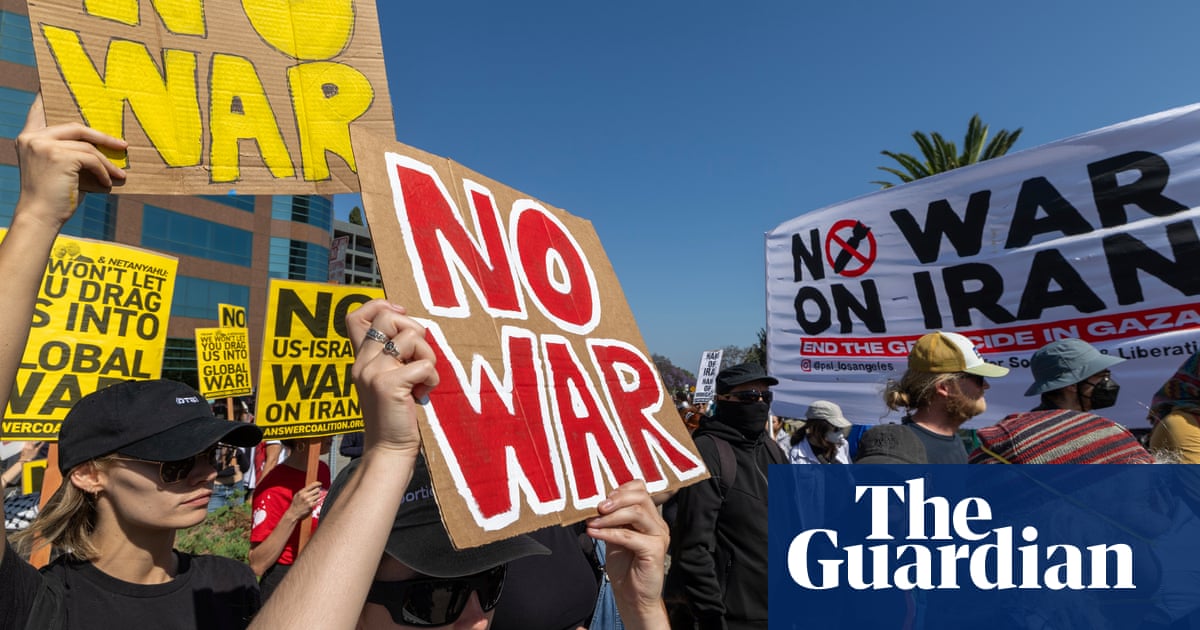Donald Trump raised the prospect of regime change in Iran and defended his claim that its nuclear enrichment sites had been “totally obliterated” by US strikes over the weekend, insisting it was an “accurate term” even as a US damage assessment was still underway.
The US president said in a social media post that the sites – which were struck by GBU-57 “bunker buster” bombs and Tomahawk cruise missiles on Saturday night – sustained “monumental damage”, adding: “The biggest damage took place far below ground level. Bullseye!!!”
Trump also highlighted the possibility of regime change in Tehran if the country’s leaders were unable to “makeIrangreat again”, going further than remarks by his senior officials. Defence secretary Pete Hegseth said the mission “was not and has not been about regime change” but instead “a precision operation” targeting Iran’s nuclear programme. Vice-president JD Vance said the US was “not at war with Iran, we’re at war with Iran’s nuclear programme” while US secretary of state Marco Rubio said the US was “not looking for war in Iran”.
Iran’s President Masoud Pezeshkian said the US strikes revealed Washington was “behind” Israel’s campaign against the Islamic republic andvowed a response.
US defence officials were re still working to determine just how much damageOperation Midnight Hammerdid. General Dan Caine, the chair of the joint chiefs of staff, said earlier it was not clear whether Iran retained some nuclear capability and he stopped short of using the same language as Trump.
UN nuclear chief Rafael Grossi said: “At this time, no one, including the [International Atomic Energy Agency], is in a position to assess the underground damage atFordow.”
Meanwhile, unprecedented attacks continued to send shockwaves through the Middle East and further afield. Airlines sought to help thousands of travellers stranded in the region while countries arranged repatriation flights for citizens. The US Department of Homeland Security issued a terrorism bulletin on Sunday warning of cyber attacks and violence in the US, including antisemitic hate crimes.
It said there were “no specific credible threats against the homeland” but noted that a “heightened threat environment across the United States” was expected to last throughout the summer.
Oil prices briefly surged early on Monday amid concerns that Iran might seek to inflict economic pain on the US by closingthe Strait of Hormuz, a strategically important waterway through which over a fifth of the world’s oil supply passes.
Iran’s parliament has reportedly approved the closing of the route, although any decision would be made by Iran’s supreme national security council, Reuters reported. Rubio sought head off that scenario, telling Fox News on Sunday: “I encourage the Chinese government in Beijing to call them [Iran] about that because they heavily depend on the Strait of Hormuz for their oil.”
Tehran’s next move may be influenced by advice from Russia. Iranian foreign minister Abbas Araqchi landed in Moscow early on Monday to discuss “common threats” with President Vladimir Putin. Earlier, Araqchi warned would be no return to diplomacy until it had retaliated. “The US showed they have no respect for international law. They only understand the language of threat and force,” he said.
Amid continuing turmoil, France said on Sunday it would send military aircraft to Israel to fly any of its citizens who wish to leave out to Cyprus. France has 250,000 of its citizens in Israel. A crisis team at the French foreign ministry has received more than 4,500 phone calls in the past week.
On Monday, the first group of Filipinos will be repatriated, mainly from Israel. At least 30,742 Filipinos are living and working in Israel, many of them in the care sector, while 1,180 are living in Iran. A total of 223 Filipino nationals in Israel and eight in Iran have requested repatriation after the weekend strikes, according to local media.
The number of Australian citizens seeking government help to evacuate the Middle East reached 3,800 as of Sunday morning, including 2,600 people in Iran and 1,200 in Israel. Australia said it has sent two defence planes to the region to assist with any civilian evacuations.
Air France KLM said on Sunday that it cancelled flights to and from Dubai and Riyadh on Sunday and Monday. British Airways also cancelled flights to and from Dubai and Doha for Sunday. It was still reviewing the situation, it said in a statement on Sunday evening, when asked about later flights.
The Middle East route has become more important for flights between Europe and Asia in the wake of the Ukraine war.
